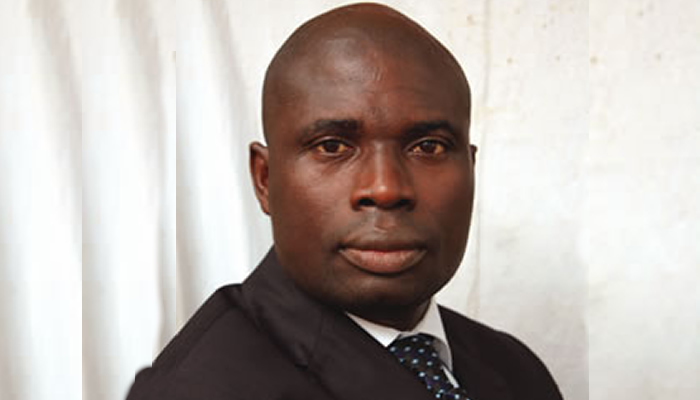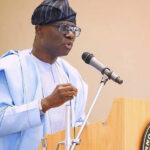
A comment someone made in the social media about PhD holders made me ask the question and it is of interest to me because I hold the qualification. I don’t pretend I understand all that the person has in mind by stating what he did but I offer my perspective here nonetheless. I infer from his comment that he’s saying he’s not impressed; I don’t know about what exactly and about whom. One thing is clear though: he doesn’t have a PhD and what he feels he should be reading from those that have in the social media is missing. Here, I extend the person’s observation to include all persons with any high level of educational attainment, not just PhD.
What did the person who made the comment expect of people with high educational qualifications? Is there any specific way that it is compulsory such persons should come across in the social media? Do PhD holders think that what the person who raises the issue expects is what they must compulsorily offer? More than that, if a PhD holder is versatile, multi-talented, having abilities in areas other than the field in which he holds PhD, should he suppress all of that mainly because he must meet, possibly, expectations of ‘intellectualism’ that the person who raises the question has?
Why do I take on this topic about what is expected of a PhD holder in the social media? Simple. Every occurrence under the sun is a topic for interrogation by a columnist. Nothing is too inconsequential for a columnist to delve into as some like to think. That seemingly ‘irrelevant’ issue, by the time a columnist brings in deeper insights he can open up minds in unexpected directions. Over every tiny matter, the columnist spends time pondering, searching to see if there are other issues, angles, insights which he can add such that the topic becomes rounded enough to inform, enlighten, and educate the public. This way, many had called me in the past to say, “Tunji, I never thought about it that way before.”
I recall one religious leader who, years ago, called to say I pointed out in my interrogation something present in the holy book he used all the time but which he himself never took notice of. It was an issue that had to do with his fellow religious leaders and he said he was going to raise it with his colleagues. That’s what a columnist does. He informs to broaden view, to make see what is not ordinarily seen in order to help improve the polity. For there is no single view, no single narrative in a matter. No one narrative proffers all solutions. Multitude of views, even dissenting ones, actually assisted nations, organisations, faiths, to arrive where they are today.
How should PhD holders come across in the social media? Before I proceed to offer my view on this, first I ask? What is social media? Answer to this gives one the impression of the kind of people PhD holders have to interact with. I give my impression regarding the question rather than provide some dictionary or intellectually sounding meaning: it wasn’t what I thought I would find, but it was what I found. As a PhD holder, I had thought I would find people who would want to engage at some intellectual level. But the majority wasn’t interested. So the kind of people that populate the social media and the level at which they engage define the space for me. It’s a social space, an informal outdoor kind of setting, a pepper soup joint, a beer parlour where anything goes, including insults as well as ethnic and religious bigotry.
It’s a village square. Here, mostly entertainment stuff, the scandalous, gossips, untruths, half-truths, and gaudy sentiments catch more attention. You can say anything in this village square, only that the space is an electronic one. People don’t really engage, they follow based on the fact that they know you somewhere else and you say what they like to hear only; they detest alternative views. Rather than engage you at the level of clear-headed discussion of the alternative view you proffer, they throw insults. Note that in a village square, all manner of people gather, from the educated to the not-so-educated who have access to a digital device. To that extent, the level at which PhD holders can display any ‘intellectual stuff’ they may have is already defined. Meaning, he has to come down to the level of everyone if he must engage at all, speak the common language of the village square, rather than speak above people’s heads.
What I shall state immediately here may speak to what a PhD holder thinks his role is, rather than what others think it should be, but I’ll still return fully to the same issue shortly. Now, earlier on as a columnist I had to make up my mind how I wanted to engage with the reader. I could have restricted myself to discussing international relations which is my area of specialisation in political science. I could have chosen the path of writing ‘intellectual stuff.’ I decided, however, that I wanted to engage with the highest number of readers possible by writing simple everyday English. I wanted to treat everyday issue, even if I had to deploy my academic background when this would provide some insight.
I was never interested in sounding like some lecturer in a political science class. I didn’t want to restrict myself. If I had experienced something regarding every issue that affected Nigerians and the polity, I wanted to be able to write about it. About 20 years down the line, I’m happy I took this path. Many Nigerians called to say I expressed phenomena they had experienced. They were happy that someone captured and expressed such on the platform I did. That’s more important to me than consciously putting on display ‘intellectual prowess,’ deploying bombastic English to show I hold a PhD.
So, I started out as a columnist with the intention to inform and enlighten as many as I could reach. Many readers sent me messages that I got across to them on that score. Then I became an activist with my column. How? I see trends that aren’t positive for people and nation, trends that most journalists and columnists appear to silently approve, if not promote, and I decide to point them out in my column. This is our nation and we mustn’t all look on and allow what can destroy the nation fester. For instance, there has been an effort to pursue a narrative over the farmer-herder matter: When a tribe that is hated is suspected to be involved in a violent attack, they’re loudly mentioned. When other tribes that are not hated are involved in attacks there’s silence (See “Consciously demonising tribes in Nigerian media” – The PUNCH – July 29, 2023).
Another issue has to do with some of the comments from religious leaders. Some of such comments are not only divisive, they must embarrass those who have a grasp of the fundamentals of their religions. There’s as well that effort by some highly educated people to blame the entire national security challenge on a tribe. How does a national security architecture that hasn’t served anyone become something that’s blamed on an entire tribe because of a few criminal elements among them? These are topics many columnists don’t touch for reasons best known to them. But I treated them because I felt Nigerians out there needed to have the other perspectives to what they were fed with particularly in the social media.
Besides, since social media accepts what entertains, I write drama pieces and satires that I post. I make jokes, offering my view on everyday issue, including what I observe of the world of children even. I enormously enjoy doing these things, doing them is where I get my kick, and I don’t think I should hide that side to me because someone expects me to sound in a particular way as a PhD holder. In any case, my view has always been that hiding who you are in order to comply with what others expect in the public space is no way to live.




